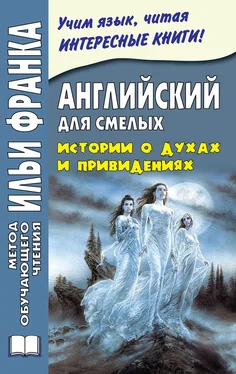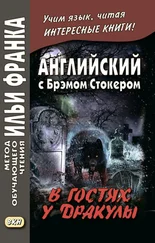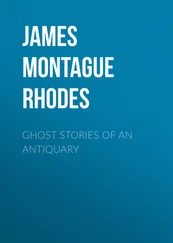
 But even whilst he made this explanation he felt its weakness. To begin with, the desk was too high for a boy. The improbability that any boy would place a book there was equalled by the improbability that he would leave it there. To discover its uninviting character would be the work only of a moment, and no boy would have brought it so far from its shelf.
But even whilst he made this explanation he felt its weakness. To begin with, the desk was too high for a boy. The improbability that any boy would place a book there was equalled by the improbability that he would leave it there. To discover its uninviting character would be the work only of a moment, and no boy would have brought it so far from its shelf.
Mr Batchel had, however, come to read, and habit was too strong with him to be wholly set aside. Leaving ‘The Compleat Gard’ner’ on the desk, he turned round to the shelves to find some more congenial reading.
Hardly had he done this when he was startled by a sharp rap upon the desk behind him, followed by a rustling of paper. He turned quickly about and saw the quarto lying open. In obedience to the instinct of the moment, he at once sought a natural cause for what he saw. Only a wind, and that of the strongest, could have opened the book, and laid back its heavy cover; and though he accepted, for a brief moment, that explanation, he was too candid to retain it longer. The wind out of doors was very light; the window sash was closed and latched, and, to decide the matter finally, the book had its back, and not its edges, turned towards the only quarter from which a wind could strike.
Mr Batchel approached the desk again and stood over the book(мистер Бэтчел снова подошел к столу и встал над книгой; to approach – подходить, приближаться ) . With increasing perturbation of mind (for he still thought of the matchbox) he looked upon the open page(в усилившемся замешательстве: «смятении ума» – так как он все еще думал о спичечном коробке – он посмотрел на открытую страницу) . Without much reason beyond that he felt constrained to do something(без особой на то причины, кроме того что он ощущал потребность что-то сделать; much – присутствующий в большом количестве или объеме; to constrain – заставлять, принуждать; обязывать ) , he read the words of the half completed sentence at the turn of the page(он прочитал слова предложения без начала вверху страницы: «полузавершенного предложения на повороте страницы») – ‘at dead of night he left the house and passed into the solitude of the garden(в глухую полночь он покинул дом и прошел в тишину сада; dead – / прил. / мертвый; / сущ. / глухая пора / время полной тишины, темноты, холода / ; at dead of night – глубокой ночью; solitude – одиночество; уединенность; удаленность ) .’
But he read no more(дальше он не читал; no more – больше не, ничего больше ) , nor did he give himself the trouble of discovering whose midnight wandering was being described(также он не дал себе труда обнаружить, чьи полуночные скитания описывались) , although the habit was singularly like one of his own(хотя эта привычка до странности походила на одну из его собственных; singularly – в единственном числе; особенно, необычно ) . He was in no condition for reading(он был не в том состоянии, чтобы читать) , and turning his back upon the volume he slowly paced the length of the chamber(и, повернувшись спиной к книге, он неспешными шагами: «медленно» прошествовал вглубь комнаты; to pace – шагать; расхаживать; pace – шаг; length – длина ) , ‘wondering at that which had come to pass(дивясь происшедшему; [26] to come to pass – / уст. / случаться, происходить ) .’

 Mr Batchel approached the desk again and stood over the book. With increasing perturbation of mind (for he still thought of the matchbox) he looked upon the open page. Without much reason beyond that he felt constrained to do something, he read the words of the half completed sentence at the turn of the page – ‘at dead of night he left the house and passed into the solitude of the garden.’
Mr Batchel approached the desk again and stood over the book. With increasing perturbation of mind (for he still thought of the matchbox) he looked upon the open page. Without much reason beyond that he felt constrained to do something, he read the words of the half completed sentence at the turn of the page – ‘at dead of night he left the house and passed into the solitude of the garden.’
But he read no more, nor did he give himself the trouble of discovering whose midnight wandering was being described, although the habit was singularly like one of his own. He was in no condition for reading, and turning his back upon the volume he slowly paced the length of the chamber, ‘wondering at that which had come to pass.’
He reached the opposite end of the chamber and was in the act of turning, when again he heard the rustling of paper(он дошел до противоположного конца комнаты и как раз поворачивал обратно, когда он вновь услышал шелест страниц: «бумаги»; to reach – достичь, добраться; act – действие, деяние ) , and by the time he had faced round, saw the leaves of the book again turning over(и, взглянув в сторону книги: «к тому времени, когда он развернулся», увидел, как ее страницы вновь переворачиваются; to face – повернуться, встать лицом; to face round – развернуться, повернуться лицом в противоположном направлении ) . In a moment the volume lay at rest, open in another place(мгновение спустя книга спокойно лежала, открытая в другом месте) , and there was no further movement as he approached it(и, пока он подходил к ней, больше не двигалась: «не было дальнейшего движения») . To make sure that he had not been deceived, he read again the words as they entered the page(чтобы убедиться, что он не обманулся, он перечитал слова в начале страницы: «как они вступали на страницу» = открывали страницу ) . The author was following a not uncommon practice of the time, and throwing common speech into forms suggested by Holy Writ(автор следовал нередкой = распространенной практике того времени и облекал обычную речь в библейские формы: «в формы, предложенные Священным Писанием»; uncommon – редкий, необычный; to throw – бросать; направлять, посылать ) : ‘So dig,’ it said, ‘that ye may obtain(итак копайте, – говорилось там, – и вы обрящете: «чтобы вы могли обрести»; ye = you – / уст. / вы; to obtain – получать; добывать; приобретать ) .’
Читать дальше
Конец ознакомительного отрывка
Купить книгу


 But even whilst he made this explanation he felt its weakness. To begin with, the desk was too high for a boy. The improbability that any boy would place a book there was equalled by the improbability that he would leave it there. To discover its uninviting character would be the work only of a moment, and no boy would have brought it so far from its shelf.
But even whilst he made this explanation he felt its weakness. To begin with, the desk was too high for a boy. The improbability that any boy would place a book there was equalled by the improbability that he would leave it there. To discover its uninviting character would be the work only of a moment, and no boy would have brought it so far from its shelf.










